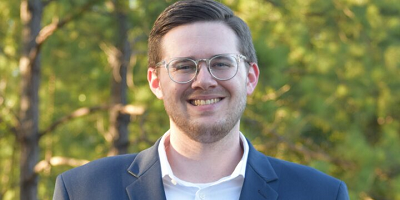Gift giving – and the ritual around gift giving – is an important tradition in Japanese culture, and something I quickly learned during Dai-ichi Life Insurance Co.’s acquisition of Protective Life Corporation a few years ago.
At that time, I was responsible for Investor Relations, so I was heavily involved in the acquisition discussions and process. One of my first and most memorable gifts during that time was a washcloth.
I admit the gift initially puzzled me. I have received several washcloths of different colors from Dai-ichi colleagues over the years since then. I love them – and I use them – but I didn’t really understand the significance until I made my first trip to Tokyo.
In Tokyo, most everyone carries their own reusable hand towel because public buildings don’t have paper towels or hand dryers. There is purposeful intent in Japan not to create paper waste that would then go into a landfill. As a land-scarce country, Japan is trying to minimize landfill use because of dwindling options for waste disposal.
Once I understood that, the functional and symbolic significance of the washcloth, the gift made sense to me. It also helped me realize that our companies share a similar philosophy of giving: We want to give gifts that carry a message and make a difference.
Both Protective and Dai-ichi have long histories of focused philanthropy in their respective communities. In my current role as executive director of Protective Life Foundation, those similarities created an invaluable synergy for corporate gift giving.
Protective’s history of good works is established and recognized in the communities where we operate. It’s been a core part of our community identity since we were founded more than a century ago. Protective was a lead donor for the creation of Railroad Park, an eight-block green space in downtown Birmingham. Over the years we have supported many organizations, including the Jones Valley Teaching Farm’s Good School Food program and Habitat for Humanity builds, as well as PreSchool Partners, a school readiness initiative.
Wherever our giving can be a catalyst for community growth and improvement, you’re likely to find us involved.
Dai-ichi’s tradition of meaningful acts of philanthropy may be less well-known in the United States, but their history of giving has been transformative in Japan.
For instance, Dai-ichi in 1935 established the “Hoseikai” Foundation, offering facilities for the prevention and treatment of tuberculosis, which was the primary cause of death at that time in Japan. Dai-ichi also offered aid to the victims of the Great East Japan Earthquake of 2011 as well as special treatment for policyholders affected by the natural disaster.
Closer to home, Dai-ichi recently donated money to the Conservation Fund to help with the purchase of land to extend Alabama’s Pinhoti Trail which one day could provide a southern terminus in Alabama for the Appalachian Trail.
Dai-ichi leaders also have visited several organizations Protective supports so they can see firsthand the significance of our gifts in the community.
For me, Dai-ichi’s most valuable gift has been its trust in the Protective Life Foundation and its confidence in our process to determine gift disbursement. Like most foundations, we receive many requests for support. These requests are considered by a committee based on the opportunities in the communities and our philanthropic guidelines.
That committee also helps determine how we disburse funds to support the outstanding organizations in our communities. These organizations tackle everything from dealing with difficult human issues, to enhancing and creating green spaces, to enriching cultural and artistic venues. It’s all about improving the quality of life for our communities now and in the future.
These are gifts that make a difference every day, that have significance now and, in the future. Dai-ichi is supportive of Protective Life Foundation’s work, allowing funding decisions to be made locally by people who see and understand the needs in the community.
And this gets me back to context around a gift – what it means and how it can make such a difference. Listening is key. When you listen and empower those who understand the needs to guide giving decisions, your gifts have more impact and more meaning.
Eva Robertson is VP, community relations and executive director of the Protective Life Foundation at Protective.
WEB.1233030.05.19





 To exercise your privacy choices,
To exercise your privacy choices,